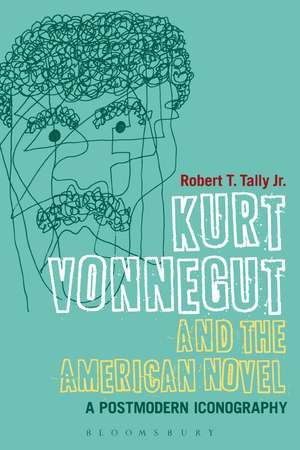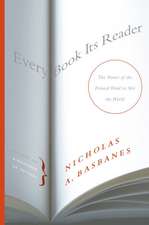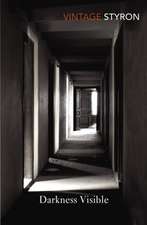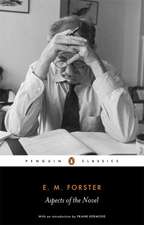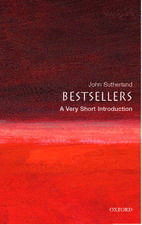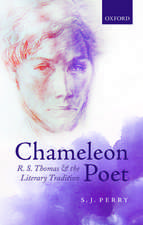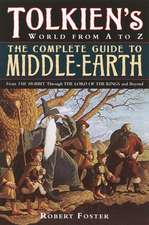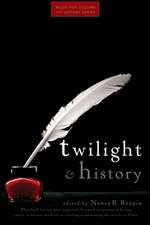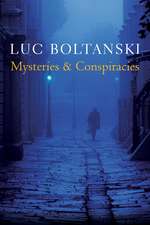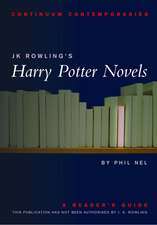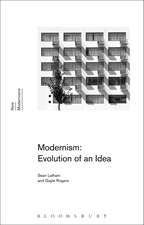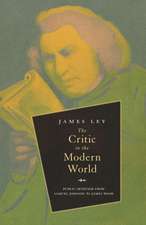Kurt Vonnegut and the American Novel: A Postmodern Iconography
Autor Dr Robert T. Tally Jr.en Limba Engleză Paperback – 10 apr 2013
| Toate formatele și edițiile | Preț | Express |
|---|---|---|
| Paperback (1) | 256.20 lei 6-8 săpt. | |
| Bloomsbury Publishing – 10 apr 2013 | 256.20 lei 6-8 săpt. | |
| Hardback (1) | 772.81 lei 6-8 săpt. | |
| Bloomsbury Publishing – 10 aug 2011 | 772.81 lei 6-8 săpt. |
Preț: 256.20 lei
Preț vechi: 330.51 lei
-22% Nou
Puncte Express: 384
Preț estimativ în valută:
49.04€ • 50.53$ • 41.40£
49.04€ • 50.53$ • 41.40£
Carte tipărită la comandă
Livrare economică 01-15 martie
Preluare comenzi: 021 569.72.76
Specificații
ISBN-13: 9781472507006
ISBN-10: 1472507002
Pagini: 208
Ilustrații: black & white illustrations
Dimensiuni: 156 x 234 x 11 mm
Greutate: 0.3 kg
Editura: Bloomsbury Publishing
Colecția Bloomsbury Academic
Locul publicării:London, United Kingdom
ISBN-10: 1472507002
Pagini: 208
Ilustrații: black & white illustrations
Dimensiuni: 156 x 234 x 11 mm
Greutate: 0.3 kg
Editura: Bloomsbury Publishing
Colecția Bloomsbury Academic
Locul publicării:London, United Kingdom
Caracteristici
Discusses the relationship between modernism and postmodernism alongside the theory of the novel
Notă biografică
Robert T. Tally Jr. is Associate Professor of English at Texas State University, USA, where he teaches American and world literature.
Cuprins
Acknowledgements \ Preface \ 1. A Postmodern Iconography \ 2. Misanthropic Humanism: Player Piano and The Sirens of Titan \ 3. Anxiety and the Jargon of Authenticity: Mother Night \ 4. Dialectic of American Enlightenment: Cat's Cradle and God Bless You, Mr. Rosewater \ 5. Eternal Returns, or Tralfamadorian Ethics: Slaughterhouse-Five \ 6. Anti-Oedipus of the Heartland: Breakfast of Champions \ 7. Imaginary Communities, or the Ends of the Political: Slapstick and Jailbird \ 8. Abstract Idealism: Deadeye Dick and Bluebeard \ 9. Apocalypse in the Optative Mood: Galápagos \ 10. Twilight of the Icons: Hocus Pocus and Timequake \Bibliography \ Index
Recenzii
Kurt Vonnegut and the American Novel is an exciting re-evaluation of this much overlooked author's work. Tally deftly rereads Vonnegut's novels, situating them in an American tradition of fiction that seeks to make sense of the larger American experience. The book skilfully interweaves a germane selection of literary and critical theory to convincingly argue that Vonnegut should be reassessed as a substantial Modernist rather than Postmodernist writer.
Robert Tally's book makes a serious scholarly contribution not only to Vonnegut studies, but to the field of contemporary American literature in general. Arguing persuasively that Vonnegut is a "reluctant postmodernist," a "misanthropic humanist" with modernist longings, Tally situates his readings of Vonnegut's fourteen novels amid recent critical debates about American literature, about postmodernism, and about what it means to be a human being. The book is that rarest of academic works, at once critically well-informed and eminently readable.
A Melville as well as a Vonegut scholar, Tally (Texas State Univ.) grapples with Vonegut's novels as attempts, albeit failed ones, at writing the 'great American novel.' In Tally's view, this project constitutes partly an attempt to 'grasp the essence of American life at its moment.' Recommended. Upper division undergraduates and above. --L. A. Brewer, Fortis College
Kurt Vonnegut and the American Novel does much to reposition Vonnegut as a major American writer. By approaching Vonnegut's oeuvre as an integrated postmodern iconography, a strategic project bridging the gap between modernism and postmodernism, Tally reveals Vonnegut to be a serious, deeply imaginative writer whose fictions intervene in major intellectual debates-political and theoretical-that continue to impact contemporary social developments.
Robert Tally In Kurt Vonnegut and The American Novel: A Postmodern Iconography, argues that Vonnegut's work is "untimely" in that he writes as a modernist stuck "in a postmodern condition." Tally then uses this distinction to drive a wide-ranging discussion of postmodernism and other theories relevant to reading Vonnegut claiming that Vonnegut employs the novel form to construct a postmodern iconography. The result is a very readable, highly original, clearly focused monograph.
Kurt Vonnegut and the American Novel offers a comprehensive and considered take on Vonnegut's novels in the light of influential philosophers and cultural theorists. Where this may be of particular interest to Vonnegut fans and American literature scholars, the application of the particular theoretical positions are generalizable and useful to a far wider readership. The book succeeds in capturing the particular genius of Vonnegut's work, and certainly encourages or reignites quietly dormant fandom.
Robert Tally's book makes a serious scholarly contribution not only to Vonnegut studies, but to the field of contemporary American literature in general. Arguing persuasively that Vonnegut is a "reluctant postmodernist," a "misanthropic humanist" with modernist longings, Tally situates his readings of Vonnegut's fourteen novels amid recent critical debates about American literature, about postmodernism, and about what it means to be a human being. The book is that rarest of academic works, at once critically well-informed and eminently readable.
A Melville as well as a Vonegut scholar, Tally (Texas State Univ.) grapples with Vonegut's novels as attempts, albeit failed ones, at writing the 'great American novel.' In Tally's view, this project constitutes partly an attempt to 'grasp the essence of American life at its moment.' Recommended. Upper division undergraduates and above. --L. A. Brewer, Fortis College
Kurt Vonnegut and the American Novel does much to reposition Vonnegut as a major American writer. By approaching Vonnegut's oeuvre as an integrated postmodern iconography, a strategic project bridging the gap between modernism and postmodernism, Tally reveals Vonnegut to be a serious, deeply imaginative writer whose fictions intervene in major intellectual debates-political and theoretical-that continue to impact contemporary social developments.
Robert Tally In Kurt Vonnegut and The American Novel: A Postmodern Iconography, argues that Vonnegut's work is "untimely" in that he writes as a modernist stuck "in a postmodern condition." Tally then uses this distinction to drive a wide-ranging discussion of postmodernism and other theories relevant to reading Vonnegut claiming that Vonnegut employs the novel form to construct a postmodern iconography. The result is a very readable, highly original, clearly focused monograph.
Kurt Vonnegut and the American Novel offers a comprehensive and considered take on Vonnegut's novels in the light of influential philosophers and cultural theorists. Where this may be of particular interest to Vonnegut fans and American literature scholars, the application of the particular theoretical positions are generalizable and useful to a far wider readership. The book succeeds in capturing the particular genius of Vonnegut's work, and certainly encourages or reignites quietly dormant fandom.
Descriere
Descriere de la o altă ediție sau format:
A study of Kurt Vonnegut's novels, approaching them as literary experiments attempting to comprehend the American experience in the postmodern condition.
A study of Kurt Vonnegut's novels, approaching them as literary experiments attempting to comprehend the American experience in the postmodern condition.
